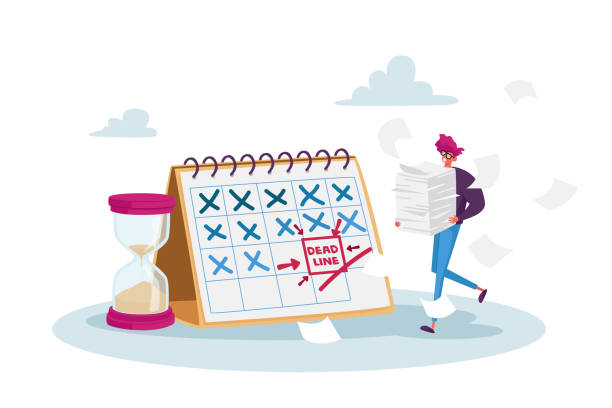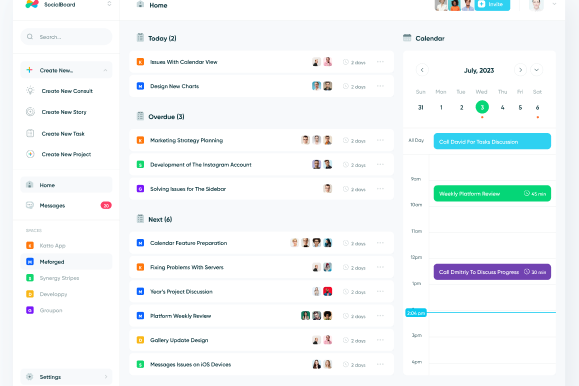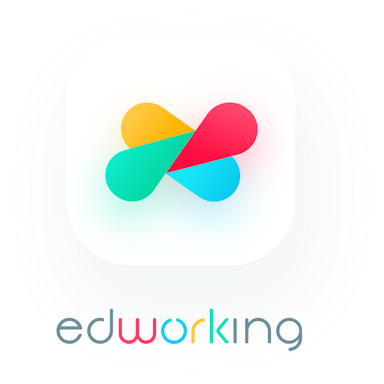Do you ever feel like deadlines are a double-edged sword? They push us to perform, but they can also overwhelm us. The psychology of deadlines reveals that these time-bound goals are more than just a ticking clock—they're a psychological trigger that can either inspire or stress your team.

In this article, we’ll dive into the science behind deadlines, explore their benefits and risks, and uncover strategies to motivate your team without piling on stress. Let’s turn deadlines from a dreaded necessity into a tool for growth and success.
 Understanding the Psychology of Deadlines
Understanding the Psychology of Deadlines
Deadlines may seem like simple dates, but their psychological impact is profound. They tap into the way our brains process urgency, time, and priorities, influencing motivation, focus, and even creativity. Let’s dive deeper into how deadlines affect us.
The Yerkes-Dodson Law: Finding the Sweet Spot
The Yerkes-Dodson Law describes the relationship between stress and performance. Imagine a bell curve: at one end is low stress, which leads to boredom and underperformance. At the other end, high stress causes anxiety and burnout. The optimal zone lies in the middle, where moderate stress boosts energy, focus, and efficiency. Deadlines often push us into this sweet spot, motivating us to perform at our best.
For example, consider a writer with no set timeline. They might procrastinate endlessly, waiting for inspiration. A deadline, however, creates a sense of urgency that propels them to sit down and write, leveraging the right level of stress for productivity.
The Brain's Response to Deadlines
Deadlines activate the brain's amygdala, which governs our fight-or-flight response. This creates a sense of urgency, spurring immediate action. However, this response can vary:
- For some, it fuels motivation, prompting them to tackle tasks head-on.
- For others, it triggers procrastination, as they become overwhelmed by the pressure.
Understanding this variability is essential for leaders to set deadlines that energize rather than paralyze their team.
Deadlines and Procrastination
The relationship between deadlines and procrastination is paradoxical. While deadlines aim to combat procrastination, they can also exacerbate it if not well-structured. Tight or unrealistic deadlines can lead to avoidance, while flexible but clear timelines encourage steady progress.
For example, a team tasked with delivering a report in two days might rush through it, sacrificing quality. Conversely, if given a realistic timeline with intermediate checkpoints, the same team can approach the task methodically, ensuring better outcomes.
 Benefits of Deadlines for Teams
Benefits of Deadlines for Teams
Deadlines are more than just ticking clocks—they're powerful tools that provide structure, focus, and motivation for teams. When managed effectively, deadlines can create an environment that fosters achievement and collaboration. Here are the key benefits.

Structure and Prioritization
Deadlines create a roadmap for your team. Instead of facing an overwhelming pile of tasks, deadlines break down goals into manageable chunks. Imagine a large project like climbing a mountain. Without clear checkpoints, climbers might lose their way or expend energy inefficiently. Deadlines act as those checkpoints, ensuring steady progress toward the summit.
By providing structure, deadlines help teams prioritize effectively. Everyone knows what needs to be done first and can allocate their energy to high-impact tasks. This clarity not only boosts productivity but also reduces confusion and miscommunication within the team.
Enhanced Focus and Productivity
Have you ever noticed how people seem to accomplish more just before a vacation? That’s the magic of deadlines at work. They ignite a sense of urgency, eliminating procrastination and encouraging people to concentrate on what matters most.
In a team setting, deadlines ensure that everyone is aligned and working toward a shared timeline. This collective focus amplifies productivity. Moreover, the pressure to meet deadlines can sharpen creativity, as team members innovate to complete tasks efficiently within the constraints.
Building Team Cohesion
When a team works toward a common deadline, it fosters a sense of unity. Deadlines encourage collaboration as team members share ideas, support one another, and combine their strengths to achieve the goal. This collective effort strengthens relationships and builds trust within the team.
For example, think about a marketing team launching a product. The shared deadline of a campaign launch brings everyone together, from content creators to designers to strategists. Each person’s contribution becomes a crucial piece of the puzzle, reinforcing the value of teamwork.
 The Dark Side of Deadlines
The Dark Side of Deadlines
While deadlines have their advantages, they also come with risks. Poorly managed deadlines can harm team morale, creativity, and well-being. It’s crucial to understand these downsides to mitigate their impact.
Deadline-Induced Stress
Unrealistic deadlines can overwhelm teams, leading to chronic stress and burnout. This can result in decreased productivity and increased turnover. Over time, the constant pressure of tight timelines erodes enthusiasm and commitment.
For example, consider a design team given one week to complete a complex campaign. The rush may lead to late nights and errors, dampening morale and affecting the quality of their work.
Stifling Creativity
Creativity thrives in environments with time for reflection and exploration. Deadlines, particularly short ones, can stifle this process. When the focus shifts from innovation to mere completion, the quality of ideas often suffers.

Psychological Toll
Deadlines can also trigger feelings of inadequacy, particularly when team members struggle to meet expectations. This can lead to decreased self-esteem and increased anxiety, ultimately affecting overall team performance.
 Strategies to Motivate Without Stress
Strategies to Motivate Without Stress
Managing deadlines doesn’t have to mean managing stress. With the right strategies, you can use deadlines to inspire and motivate your team while maintaining a positive, productive environment. Here’s how to strike that balance:
1. Set Realistic Deadlines
Unrealistic deadlines are a recipe for frustration. Instead, collaborate with your team to set timelines that are ambitious yet achievable. Consider factors like task complexity, available resources, and individual workloads.
For instance, if your team is launching a marketing campaign, give enough time for brainstorming, design, revisions, and implementation. Adjust the timeline if new challenges arise, reinforcing trust and flexibility.
2. Involve the Team in Planning
Deadlines feel less like a burden when team members have a say in setting them. Collaborative planning empowers individuals and ensures timelines reflect on-the-ground realities. This approach fosters ownership, making the team more invested in meeting deadlines.
For example, during a project kickoff meeting, involve team members in breaking down tasks and estimating how long each will take. Their input ensures the timeline feels fair and practical.

3. Break Tasks into Milestones
Large projects can feel overwhelming, but breaking them into smaller milestones makes progress tangible and manageable. Milestones act as mini-deadlines, keeping the team on track and providing regular opportunities to celebrate achievements.
Imagine building a mobile app. Instead of one looming final deadline, set milestones for design mockups, feature prototypes, and beta testing. Each milestone keeps the team motivated and allows for course correction if needed.
4. Celebrate Progress and Achievements
Acknowledging progress boosts morale and motivates teams to keep going. Recognition doesn’t have to wait until the final deadline—small wins along the way are equally important. Whether it’s a shoutout in a meeting or a team lunch, celebrating achievements creates a positive atmosphere.
For example, if your team successfully completes the first phase of a project ahead of schedule, take time to recognize their effort before diving into the next phase.
5. Provide the Right Tools
Equipping your team with tools to manage deadlines reduces stress and increases efficiency. Platforms like Edworking streamline task management, making it easier to track progress, set milestones, and collaborate effectively.
With features like AI-powered scheduling and shared workspaces, such tools ensure deadlines are met without unnecessary pressure. Integrating these technologies allows your team to focus on their work rather than juggling logistics.
 Leveraging Tools to Support Deadline Management
Leveraging Tools to Support Deadline Management
In today’s fast-paced work environment, technology plays a vital role in transforming how teams handle deadlines. The right tools not only reduce stress but also enhance collaboration and efficiency. Here’s how leveraging technology can make a difference:
AI-Powered Scheduling for Smarter Deadlines
One of the biggest challenges in meeting deadlines is organizing tasks effectively. AI-driven tools simplify this by analyzing workload, prioritizing tasks, and suggesting realistic timelines. This eliminates the guesswork and ensures deadlines align with the team's capacity.
For example, Edworking's AI scheduling features allow you to allocate tasks dynamically based on real-time progress. If delays occur, the tool adjusts schedules, helping teams stay on track without feeling overwhelmed.
Centralized Task Management Platforms
Fragmented workflows are a significant source of stress. Centralized platforms like Edworking provide a single space where teams can manage projects, set deadlines, and track progress. This transparency ensures everyone knows what’s expected and when.
Key features of such platforms include:
- Kanban and List Views: Visualize tasks and deadlines at a glance.
- Progress Tracking: Monitor milestones and adjust as needed.
- Collaboration Spaces: Share files and updates seamlessly.
Automated Notifications and Reminders
Manual follow-ups can be exhausting for managers and distracting for teams. Automation tools send reminders for upcoming deadlines or overdue tasks, keeping everyone aligned without constant intervention.
For instance, you can use Edworking's built-in notifications to alert team members about upcoming milestones, ensuring nothing slips through the cracks.
Integrating Creativity and Collaboration
Deadlines shouldn’t stifle creativity. Tools that foster innovation, like AI-powered brainstorming assistants or design collaboration platforms, help teams maintain high-quality output under time constraints. Edworking’s productivity tools include features that enhance both creativity and efficiency, making it easier for teams to meet deadlines without sacrificing quality.
 Real-Life Examples
Real-Life Examples
To truly understand the impact of well-managed deadlines, let’s look at how successful teams leverage the psychology of deadlines and effective strategies to stay motivated without stress.

A Marketing Team’s Campaign Launch
Imagine a marketing team tasked with launching a new product. Initially, the deadline seemed daunting—a tight timeline paired with ambitious goals. To avoid burnout, the team adopted several strategies:
- Collaborative Planning: They organized a kickoff meeting where every member contributed to the timeline, ensuring realistic deadlines for each phase.
- Breaking Down Milestones: Instead of one overwhelming deadline, they set smaller goals for market research, ad design, and content creation.
- Celebrating Progress: After completing each milestone, they acknowledged the achievement with team shoutouts and occasional coffee runs.
The result? The campaign launched on time with minimal stress, and the team maintained high morale throughout the process.

Startup Innovation Under Pressure
A startup team working on a software prototype faced a major challenge: a looming investor pitch. Instead of succumbing to panic, they relied on tools like Edworking to streamline their workflow:
- Task Prioritization: Using a Kanban board, they assigned critical tasks to top developers.
- AI-Powered Scheduling: Adjustments were made dynamically when unexpected issues arose, avoiding delays.
- Collaboration Features: Designers and coders collaborated in real-time, reducing revision cycles.
By leveraging psychology-backed strategies and tools, they delivered a polished prototype, securing the funding needed to scale.
A Creative Agency’s Use of Flexible Deadlines
A creative agency found their team’s innovation declining under rigid deadlines. They experimented with flexible timelines, incorporating the team’s input during planning. By focusing on milestones rather than fixed endpoints, they balanced creativity with accountability, delivering high-quality projects on time.
 Connecting to Edworking
Connecting to Edworking
When it comes to managing deadlines effectively and keeping your team motivated, Edworking stands out as a comprehensive solution. With its array of tools tailored for collaboration, productivity, and creativity, Edworking ensures that deadlines drive progress without causing unnecessary stress.
Features That Support Deadline Management
Shared Workspaces
Edworking's shared workspaces allow teams to centralize their projects, deadlines, and communication in one place. Everyone has visibility into tasks and progress, reducing miscommunication and confusion.
AI-Powered Scheduling
This feature optimizes deadlines by analyzing workloads and suggesting realistic timelines. Whether you’re adjusting due dates or reallocating tasks, the system ensures deadlines remain achievable without overburdening your team.
Progress Tracking and Notifications
Edworking keeps teams on track with visual progress indicators and automated reminders. These tools make it easy to monitor milestones and adjust priorities, minimizing deadline-related stress.
Creative Collaboration Tools
Balancing creativity with deadlines is crucial. Edworking provides tools that enhance brainstorming, streamline design processes, and foster innovation—all while keeping deadlines in focus.
AI Creative and Productivity Tools

From brainstorming ideas to managing intricate projects, Edworking’s AI Creative and Productivity Tools amplify efficiency. Features like AI-powered task prioritization and collaborative document editing simplify complex workflows, ensuring deadlines are met without compromising on quality.
Why Choose Edworking?
By integrating deadline management, creativity, and productivity into one platform, Edworking offers a seamless solution for teams looking to stay motivated and stress-free. Whether you’re leading a small startup or managing a large organization, Edworking equips you with the tools you need to succeed.
 Conclusion
Conclusion
Deadlines don’t have to be a source of stress—they can be powerful tools to inspire and motivate your team when used effectively. By understanding the psychology of deadlines, we can harness their benefits while minimizing their downsides.
The key lies in balancing ambition with realism. Setting achievable deadlines, involving your team in planning, and leveraging tools like Edworking can turn deadlines into opportunities for growth, creativity, and success. Remember, deadlines should guide and empower your team, not overwhelm them.
By adopting these strategies, you can create a work environment where deadlines fuel progress and innovation, leaving stress behind.







